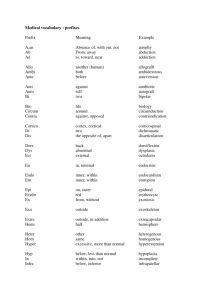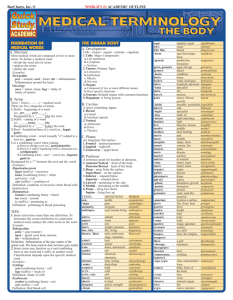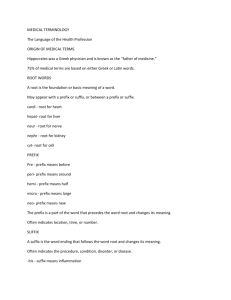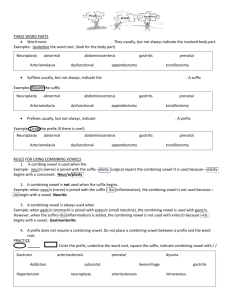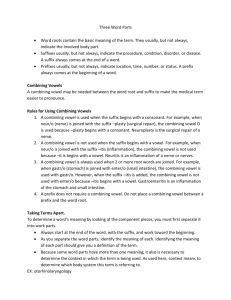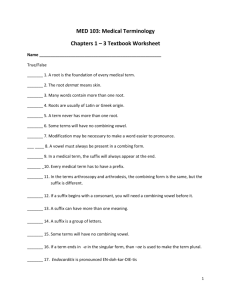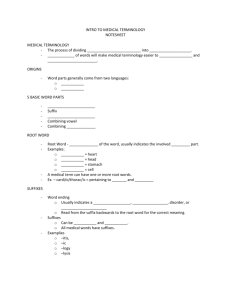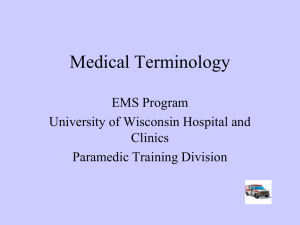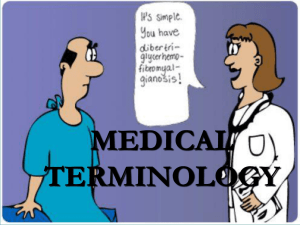File - Classroom Biz
advertisement
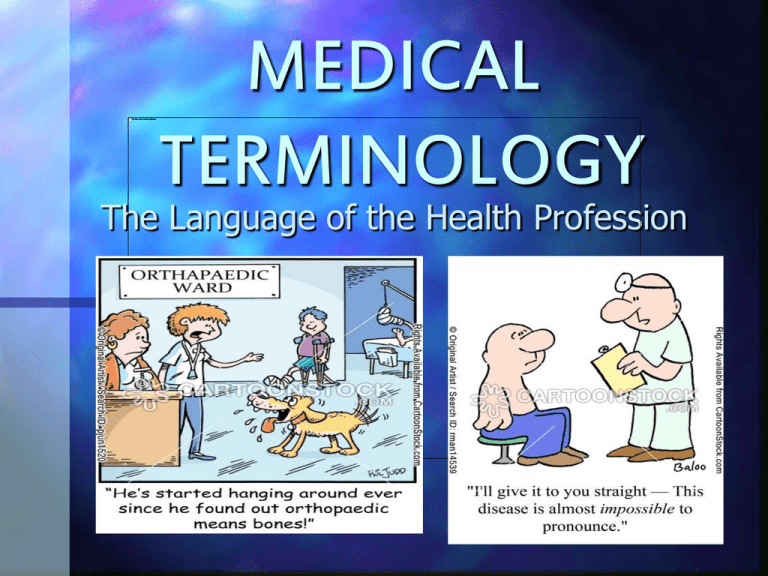
MEDICAL TERMINOLOGY The Language of the Health Profession ORIGIN OF MEDICAL TERMS Hippocrates was a Greek physician known as the “father of medicine.” 75% of medical terms are based on either Greek or Latin words. ROOT WORDS cardi = heart hepat = liver neur = nerve nephr = kidney cyt = cell A root is the foundation or basic meaning of a word. May appear with a prefix or suffix, or between a prefix or suffix. There may be more than one root word PREFIX pre = before peri = around hemi = half micro = small neo = new The prefix is a part of the word that goes before the word root It changes the meaning of the word Indicates location, time, or number. SUFFIX itis = inflammation ology = the study of ectomy = surgical removal plasty = surgical repair A suffix is placed after the root word (at the end) It changes the meaning of the word Indicates a procedure, condition, disorder, or disease Cardiology cardi = heart = root ology = the study of = suffix cardiology = the study of the heart. Nephritis nephr = kidney = root itis = inflammation = suffix nephritis = inflammation of the kidney Determine the word parts and meaning of the following words: pericarditis leukocyte hepatitis neuroplasty pericarditis peri = around = prefix cardi = heart = root word itis = inflammation = suffix pericarditis = inflammation around the heart leukocyte leuk = white = prefix o = combining vowel cyte = cell = root word leukocyte = white cell hepatitis hepat = liver = root word itis = inflammation = suffix hepatitis = inflammation of the liver neuroplasty neur/o = nerve or nerves = root word o = combining vowel plasty = surgical repair = suffix neuroplasty = surgical repair of the nerve Combining Forms Basic Rules for using the Combining Vowel The combining vowel is not used when the suffix begins with a vowel. Example: neuro/it is neur/itis The combining vowel is used when the suffix begins with a consonant. Example: neur/plasty neur/o/plasty

